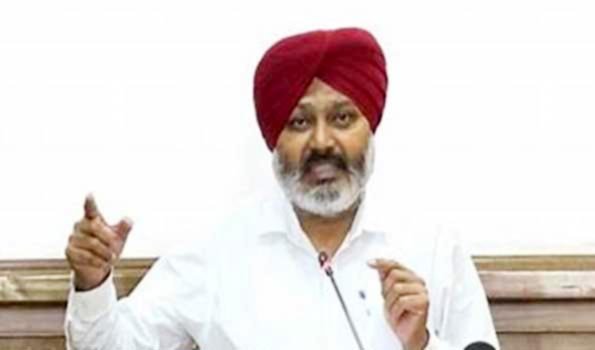Bengaluru, Mar 22 (UNI) The Indian Space Research Organisation (ISRO) marked a significant achievement with the successful execution of a landing mission for its Reusable Launch Vehicle (RLV) named “Pushpak” from the Aeronautical Test Range (ATR) in Karnataka’s Chalakere on Friday.
Taking off at approximately 7 a.m. from the Chalakere Runway, this mission represented the RLV’s third landing endeavor, following previous successful missions in 2016 and April last year.
In a departure from conventional methods, the launch vehicle was lifted to an altitude of about 4.5 km by an Indian Air Force helicopter before being released upon meeting predetermined pillbox parameters.
Emphasising the mission’s significance, ISRO highlighted its integral role in ongoing efforts to develop essential technologies for a fully reusable launch vehicle, aimed at enabling cost-effective access to space.
The winged vehicle, Pushpak (RLV-TD), executed an autonomous landing with precision on the runway after being released from an off-nominal position.
ISRO Chairperson S Somanath underscored the importance of the Pushpak launch vehicle, characterizing it as India’s bold step towards enhancing the affordability of space access.
Somanath elaborated on the reusability of the upper stage, housing expensive electronics, which could potentially facilitate tasks such as refueling in-orbit satellites or refurbishing satellites, thereby contributing to space debris reduction.
The Reusable Launch Vehicle – Technology Demonstrator (RLV-TD) project stands as one of ISRO’s most technologically challenging endeavors. Its primary objective is to develop crucial technologies for a fully reusable launch vehicle, ultimately aimed at reducing the cost of space missions.
With a configuration resembling that of an aircraft but incorporating complexities from both a launch vehicle and an airplane, the RLV-TD serves as a flying test bed to evaluate various technologies, including hypersonic flight, autonomous landing, and powered cruise flight.
ISRO envisions scaling up the RLV-TD to serve as the first stage of India’s reusable two-stage orbital launch vehicle.
In February, Somanath briefed Prime Minister Narendra Modi on the RLV mission during Modi’s visit to the Vikram Sarabhai Space Centre in Trivandrum. The project, named after the legendary spaceship in the Ramayana, is estimated to have incurred a cost exceeding Rs 100 crore.











